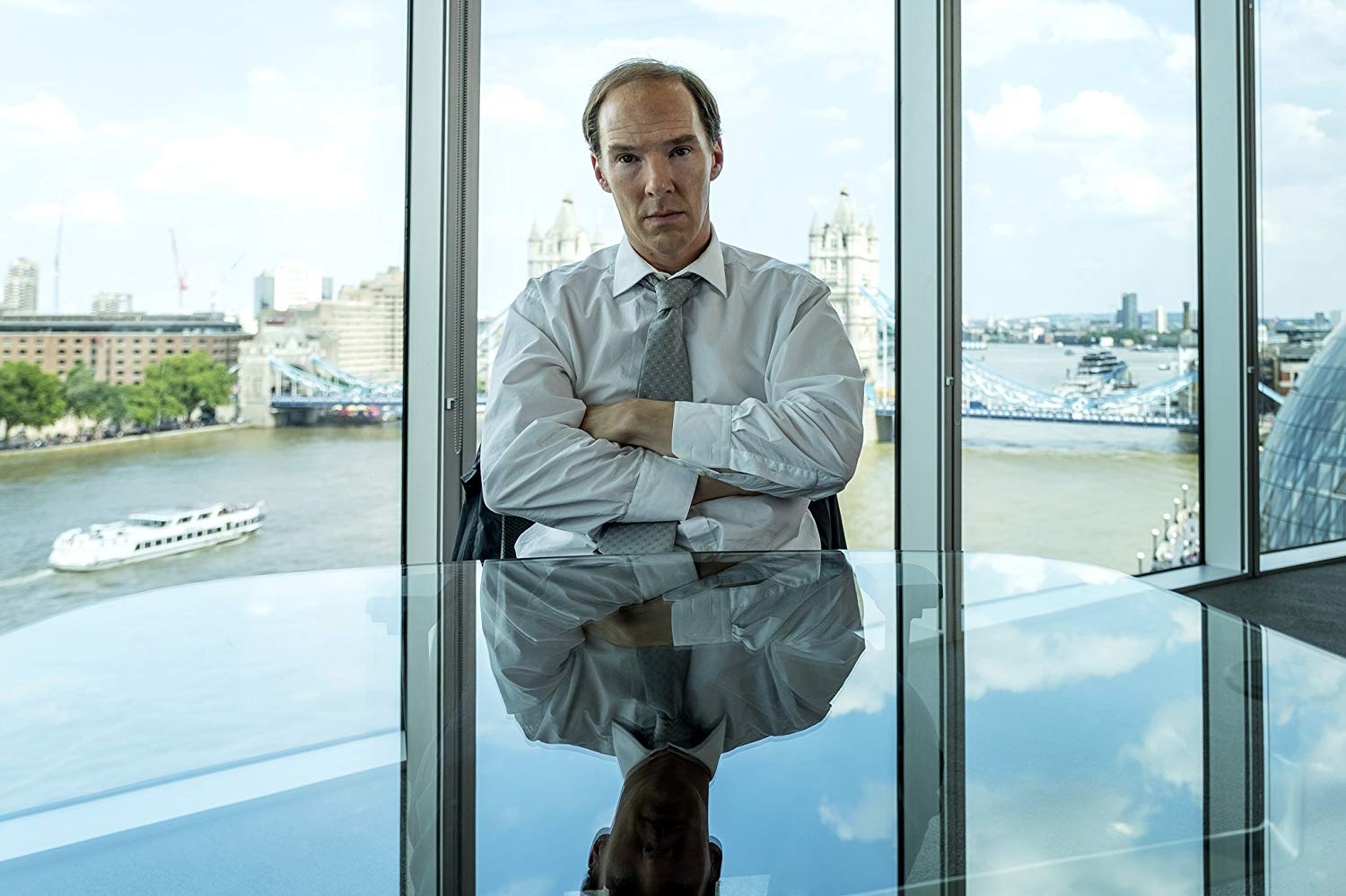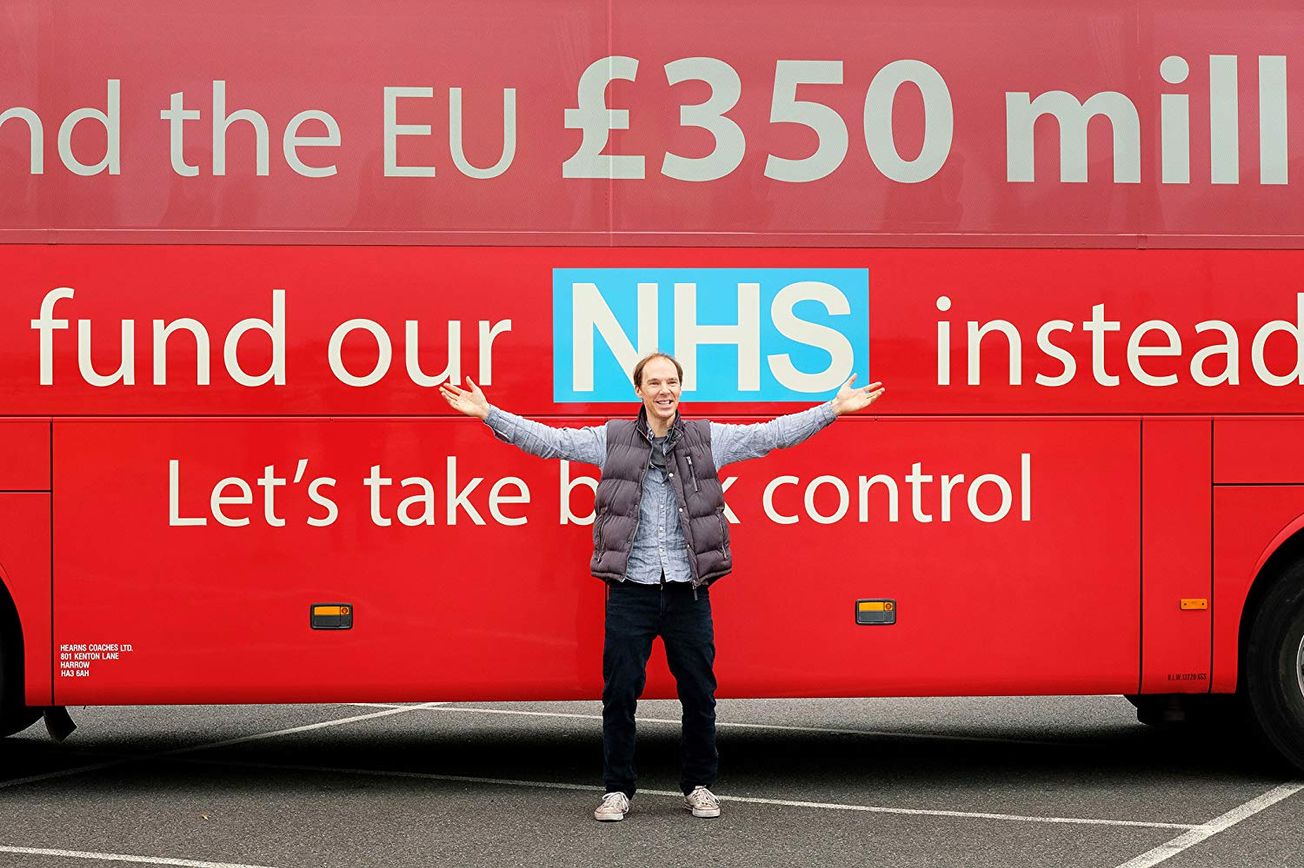By Ewan Marmo-Bissell, Second Year, History
In January, a TV movie, written by James Graham, aired on Channel 4 and gave an insight into how Dominic Cummings, leader of the Vote Leave campaign, swayed the British public in the lead up to the 2016 referendum. On what was meant to be ‘Brexit Day’, Epigram Film & TV looks back on the dramatic retelling.
Brexit: The Uncivil War is the type of drama which cannot and will not exist outside of its time, and is going to be horribly dated within the decade. Nonetheless, it has its place in the political drama genre with Benedict Cumberbatch leading the line alongside various British TV stars. The feature length TV drama has been billed as the reveal-all, behind-the-scenes, outrageous origin story to the Brexit political fiasco we all live through today. Despite this, it only seems to tell us what we already know – the how the leave campaign was run and how the remain campaign struggled to match it.

HBO / Nick Wall
The only real character in Brexit: The Uncivil War is Dominic Cummings, played by Cumberbatch, the Geordie campaign leader who is just so damn smart. He’s always the smartest guy in the room. I don’t think there’s one scene where he’s not. He’s never really challenged, he never has to change, and, because of the lack of change, his character becomes boring.
Considering he’s the most developed character in the entire drama, it doesn’t get better from there. Cumberbatch is surrounded by caricatures of real life people such as Craig Oliver, leader of the Vote Remain campaign, and Matthew Elliott, Chief Executive of Vote Leave. Here they are simply plot devices played by Rory Kinnear and John Heffernan respectively. As a result, the storytelling suffers without an engaging character for the audience to root for.
Just watched Brexit - the Uncivil War. @mrJamesGraham brilliantly captures what divides UK, shows the good & bad on both sides and explains why the change-makers end up as the winners. Watch if you want to think. Don’t if you simply want your views/prejudices amplified #Brexit
— Manpreet Suhi (@ManpreetSuhi) March 22, 2019
More caricatures are those portrayals of a few key politicians involved in the Vote Leave campaign, notably Michael Gove (Oliver Maltman), Boris Johnson (Richard Goulding), and Nigel Farage (Paul Ryan). It’s when these guys are on screen that the drama starts breaking down. Brexit: The Uncivil War dives straight into parody with regards to the politicians, and, considering it is already a sort of mishmashed espionage thriller on top of the political drama, there’s a fair few genres in the mix. Throw in some offbeat editing and, as a final product, it lacks cohesion.
If anyone’s interested in Brexit it’s definitely worth a watch. As an exploration of politics it struggles to make its message clear. The protagonist’s message seems to be lost in translation – Cummings has introduced a new politics he doesn’t wholly believe in, and yet he seems to be saying there’s ‘something more’ to Brexit than the traditional historical understanding of it.
#TheUncivilWar pic.twitter.com/iPPvY56B6C
— Shahmir Sanni (@shahmiruk) January 6, 2019
I struggled to understand what exactly this ‘something more’ means, as Brexit: The Uncivil War draws to its conclusion and settles with sit-down discussions to go over everything that has already been explained. Maybe there is something more to be said on Cummings’ character though – is his know-it-all persona a damnation of the tactics of the Vote Remain campaign? Was it obvious all along that his partisan and powerful politics would rule the day and just had to be unleashed? I’m grasping at excuses for James Graham’s weak writing, even though it seems a plausible explanation.
Brexit: The Uncivil War is a strange drama. By all means it’s put together slickly and Cumberbatch is convincing, but it doesn’t feel complete. It’s worth a watch now, especially if you are interested in politics, but in a few years it won’t be, and will fade into the Channel 4 back catalogue of political dramas, taking its seat next to Coalition (2015), also by James Graham.
Brexit: The Uncivil War is available to watch on demand on All4.
Featured Image: HBO / Nick Wall
How many stars would you give the government's performance in the real life Brexit?
Facebook // Epigram Film & TV // Twitter








